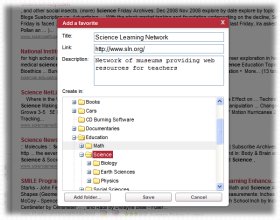|
Education
Web
Viewing 1-2 of 2 total results
Guiding Principles The following Guiding Principles present a set of tenets about effective PreK–12 science and technology/engineering programs. The goal of the Guiding Principles is to help educators create inquiry-based educational environments that encourage student cu...
1
0
Guiding Principles The following Guiding Principles present a set of tenets about effective PreK–12 science and technology/engineering programs. The goal of the Guiding Principles is to help educators create inquiry-based educational environments that encourage student curiosity, engagement, persistence, respect for evidence, and sense of responsibility. G UIDING P RINCIPLE I A comprehensive science and technology/engineering education program enrolls all students from PreK through grade 12
17
0
http://www.doe.mass.edu/frameworks/scitech/1006.pdf#page=17
www.doe.mass.edu/frameworks/scitech/1006.pdf#page=17
supported <span class="highlight">in</span> the classroom by demonstrations, experiments, or simulations that deliberately manage features of <span class="highlight">a</span> natural object or process. Whatever the instructional <span class="highlight">approach</span>, science instruction should include both concrete and manipulable materials, along with explanatory diagrams and texts. Investigations An inquiry-<span class="highlight">based</span> <span class="highlight">approach</span> to science education also engages students <span class="highlight">in</span> hands-on investigations that allow them to draw upon their prior knowledge and build new understandings and skills. Hands-on
18
0
http://www.doe.mass.edu/frameworks/scitech/1006.pdf#page=18
www.doe.mass.edu/frameworks/scitech/1006.pdf#page=18
selecting <span class="highlight">a</span> question that can be answered, formulating <span class="highlight">a</span> hypothesis, planning the steps of an experiment, and determining the most objective way to test the hypothesis. Students should incorporate mathematical skills of measuring and graphing to communicate their findings. • <span class="highlight">In</span> grades 6–8, teacher guidance remains important but allows <span class="highlight">for</span> more variation <span class="highlight">in</span> student <span class="highlight">approach</span>. Students at this level are ready to formalize their understanding of what an experiment requires by controlling variables to ensure <span class="highlight">a</span>
21
0
http://www.doe.mass.edu/frameworks/scitech/1006.pdf#page=21
www.doe.mass.edu/frameworks/scitech/1006.pdf#page=21
Guiding Principles The following Guiding Principles present <span class="highlight">a</span> set of tenets about effective PreK–12 science and technology/engineering programs. The goal of the Guiding Principles is to help educators create inquiry-<span class="highlight">based</span> educational <span class="highlight">environments</span> that encourage student curiosity, engagement, persistence, respect <span class="highlight">for</span> evidence, and sense of responsibility. G UIDING P RINCIPLE I <span class="highlight">A</span> comprehensive science and technology/engineering education program enrolls all students from PreK through grade 12
22
0
http://www.doe.mass.edu/frameworks/scitech/1006.pdf#page=22
www.doe.mass.edu/frameworks/scitech/1006.pdf#page=22
help (e.g., museum personnel, scientists, or engineers) can organize activities around concepts or topics unifying all of the domains. At the middle and high school levels, science faculty may choose either <span class="highlight">a</span> discipline-<span class="highlight">based</span> or an integrated <span class="highlight">approach</span> <span class="highlight">in</span> science. <span class="highlight">In</span> choosing an <span class="highlight">approach</span>, faculty will want to consider the particular content expertise of teachers and the academic goals, abilities, and interests of students. <span class="highlight">In</span> this document, the high school standards are written to allow <span class="highlight">for</span> choice <span class="highlight">in</span>
evaluate the various points of view and competing interests, examine ways of participating in the decision making process about the issue, and draft a position paper on how the issue should be resolved. USG.5.10 Practice civic skills and dispositions by participating in activiti...
1
0
evaluate the various points of view and competing interests, examine ways of participating in the decision making process about the issue, and draft a position paper on how the issue should be resolved. USG.5.10 Practice civic skills and dispositions by participating in activities such as simulated public hearings, mock trials, and debates. Massachusetts History and Social Science Curriculum Framework August 2003 89
95
0
http://www.doe.mass.edu/frameworks/hss/final.pdf#page=95
www.doe.mass.edu/frameworks/hss/final.pdf#page=95
evaluate the various points of view and competing interests, examine ways of participating <span class="highlight">in</span> the decision making process about the issue, and draft <span class="highlight">a</span> position paper on how the issue should be resolved. USG.5.10 Practice civic skills and dispositions by participating <span class="highlight">in</span> activities such as <span class="highlight">simulated</span> public hearings, mock trials, and debates. Massachusetts History and Social Science Curriculum Framework August 2003 89
|
